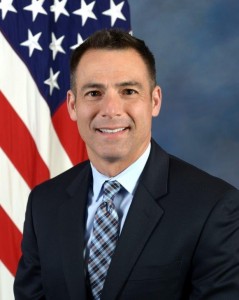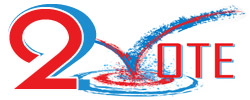It is my distinct pleasure to present the Federal Voting Assistance

Director Federal Voting Assistance Program
Program’s (FVAP) report on its Electronic Voting Demonstration Project Research. The research described in this report was conducted to inform the project planning and execution of the Department of Defense’s (DoD) previously mandated electronic voting demonstration requirement. In the National Defense Authorization Act (NDAA) for Fiscal Year 2015, Congress eliminated this requirement and DoD is no longer exploring program implementation in this area. However, I believe the research and identification of outstanding questions are valuable and should be shared with the Uniformed and Overseas Citizens Absentee Voting Act (UOCAVA)stakeholder community. The issues surrounding voting and the use of the Internet will not be going away anytime soon; I hope this research helps facilitate a constructive dialogue.
Due to its legislative requirement first established in the NDAA FY 2002, FVAP embarked on an ambitious research agenda to understand the pros and cons surrounding the issue of Internet voting and its potential for supporting UOCAVA voters. Prior to moving headlong with the development of a system architecture, FVAP wanted to understand the implications of such technology in a world that reflects an ever-changing information security environment. This report explains the context of the research associated with the electronic voting demonstration project, and discusses the scope and purpose of the research, its limitations, conclusions and recommendations.
Each reader should be aware there is no definitive recommendation on the use of Internet voting over the long-term. However, much of the supporting research may hold value for any future deliberations on the merits of remote electronic voting. While FVAP remains committed to providing overall voting assistance, the questions raised in this research revealed the importance for FVAP to focus on its core mission of voter assistance and work within the larger election community and facilitate a greater understanding of the UOCAVA voter experience.
With the repeal of the requirement, FVAP is able to focus on its core mission to ensure that Service members, their eligible family members, and overseas citizens are aware of their right to vote and have the tools and resources to successfully do so from anywhere in the world. This report should not be used to convey a position in support or against States moving forward with such technology; it is important to remember that FVAP neither advocates for nor against Internet voting.
It is my intention that by sharing this research with the UOCAVA community, stakeholders can take advantage of the knowledge gleaned from FVAP’s experiences and these extensive research efforts.
View the report at https://www.fvap.gov/info/reports-surveys/evdp-report.
Matt Boehmer
###
For more information on FVAP or assistance with the absentee voting process, visit FVAP.gov, call FVAP at 1-800-438-VOTE or DSN 425-1584 (CONUS)/312-425-1584 (OCONUS), or email vote@fvap.gov. Remember, you also can contact your unit or installation voting assistance officers for assistance during any step of the process.
Facebook.com/DoDFVAP Twitter @FVAP



12 thoughts on “FVAP Releases Research Related to Electronic Voting Demonstration Project”
Make your laptop a financial instrument with this program.
Link – – https://tinyurl.com/y7t5j7yc
Start your online work using the financial Robot.
Link – https://tinyurl.com/y7t5j7yc
Make thousands of bucks. Financial robot will help you to do it!
Link – https://tinyurl.com/y7t5j7yc
Looking for additional money? Try out the best financial instrument.
Link – https://tinyurl.com/y7t5j7yc
Earning $1000 a day is easy if you use this financial Robot.
Link – – https://tinyurl.com/y7t5j7yc
Only one click can grow up your money really fast.
Link – https://tinyurl.com/y7t5j7yc
Watch your money grow while you invest with the Robot.
Link – https://tinyurl.com/y7t5j7yc
Wow! This is a fastest way for a financial independence.
Link – – https://tinyurl.com/y7t5j7yc
No need to stay awake all night long to earn money. Launch the robot.
Link – https://tinyurl.com/y7t5j7yc
Launch the robot and let it bring you money.
Link – https://tinyurl.com/y7t5j7yc
Trust the financial Bot to become rich.
Link – https://tinyurl.com/y7t5j7yc
The huge income without investments is available.
Link – https://tinyurl.com/y7t5j7yc